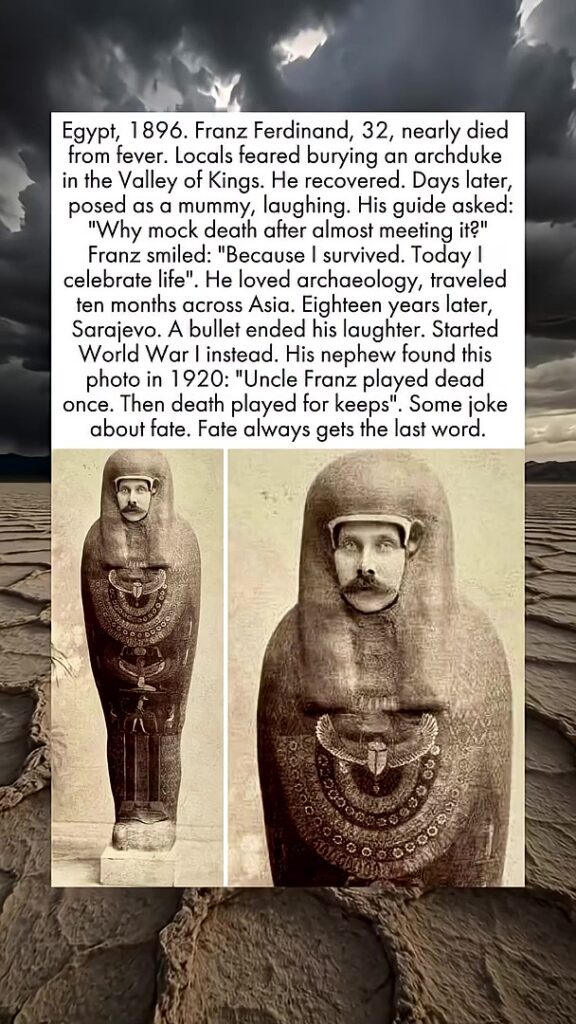In 1896, Archduke Franz Ferdinand mocked death in Egypt—only to meet it for real eighteen years later. His playful pose became a haunting echo of history’s turning point.
In the sweltering heat of Egypt, 32-year-old Franz Ferdinand, heir to the Austro-Hungarian throne, nearly died of fever. Locals feared burying royalty in the Valley of the Kings. But he recovered. Days later, in a moment of levity, he posed as a mummy beside ancient sarcophagi, laughing at the irony of survival. When asked why he mocked death, he replied, “Because I survived. Today I celebrate life.”
Franz loved archaeology and spent ten months traveling across Asia, studying ancient civilizations. But fate had its own script. On June 28, 1914, in Sarajevo, a bullet from a teenage assassin ended his life—and triggered World War I. The playful mummy photo, later found by his nephew in 1920, became a chilling symbol. “Uncle Franz played dead once. Then death played for keeps.”
His assassination wasn’t just a personal tragedy—it was the spark that ignited a global conflict. Empires collapsed, millions perished, and the world changed forever. That moment in Egypt, once a joke, now reads like a prophecy. Franz’s story reminds us that history is full of echoes—and fate always gets the last word.



